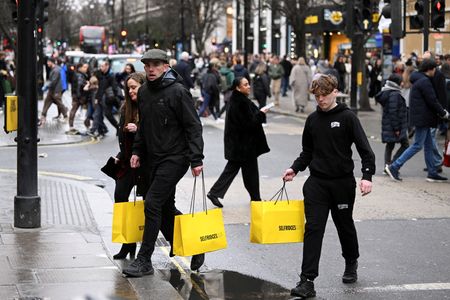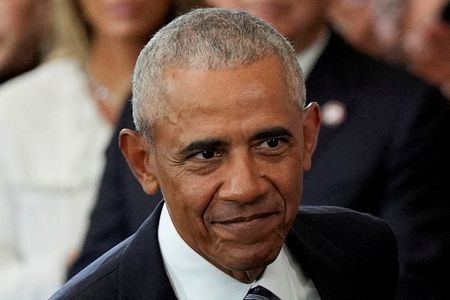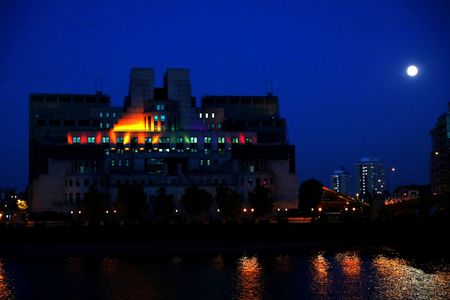LONDON (Reuters) – Shoppers at British store chains last month saw the sharpest fall in prices in more than three years but higher costs in 2025 mean retailers might struggle to keep inflation on its downward path, the British Retail Consortium said on Tuesday.
Annual shop price deflation of 1% in the 12 months to December followed a 0.6% drop in the 12 months to November, the BRC said.
It said the later timing of Black Friday sales in 2024 had distorted the year-on-year comparison. Last month’s data included the final days of the Black Friday and Cyber Monday sales, which were not included in the comparable December 2023 period.
Food inflation remained unchanged at 1.8% in December, its lowest level in three years. Prices of non-food items fell by 2.4%, a bigger drop than November’s 1.8% decrease.
Helen Dickinson, chief executive of the BRC, said the later timing of Black Friday sales made non-food prices look more deflationary than the underlying trend – something that was unlikely to last.
“With food inflation bottoming out at 1.8%, and many price pressures on the horizon, shop price deflation is likely to become a thing of the past,” she added.
Dickinson said retailers would have to raise prices to combat higher employment costs, business rates and new packaging levies announced in finance minister Rachel Reeves’ first budget in October.
In November, the BRC and major British retailers including Tesco, Marks and Spencer, Next warned Reeves the retail industry faced a 7 billion pound rise in annual costs this year due to the changes, which could risk job losses and higher prices.
($1 = 0.8110 pounds)
(Reporting by Suban Abdulla, editing by Andy Bruce)









